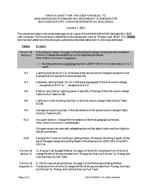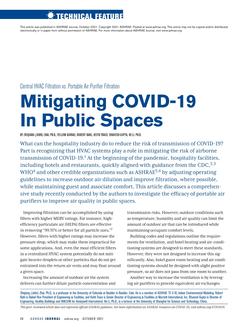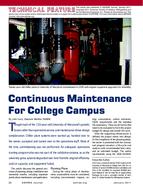A mathematical model for predicting moisture sorption rates at building surfaces is presented. The governing heat and moisture transfer equations are solved by an implicit finite-difference method. The effects of surface coatings are included in the formulation. Laboratory experiments were conducted to verify the model. Disk-shaped specimens of unpainted gypsum board, gypsum board painted with a latex paint system, and unpainted white pine were used. Sorption isotherms and diffusion coefficients for these materials were independently measured. The specimens were initially conditioned to a uniform moisture content and then moved to an environment with a lower relative humidity. The moisture transfer rates at the surfaces of the specimens were determined as a function of time and compared to predictions by the mathematical model. The validated mathematical model was used to estimate sorption rates at interior surfaces of a building during a summer diurnal schedule with day space cooling and night ventilation. The effect on the space-cooling load is discussed.
KEYWORDS: experiment, calculating, validating, water vapour permeability, buildings, surfaces, indoor, moisture, heat flow, coating, laboratory testing, paints, gypsum plasterboard, sorption properties, measuring, relative humidity, space cooling.
Citation: ASHRAE Transactions, vol.96, pt. 1, Atlanta, 1990
Product Details
- Published:
- 1990
- Number of Pages:
- 10
- File Size:
- 1 file , 1.4 MB
- Product Code(s):
- D-18433


